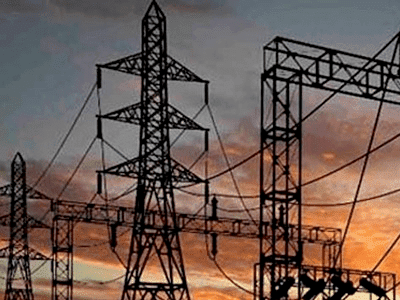Will Coal India Limited’s “Fuel Supply Agreements” solve the crisis for power producers?
Share This Post
India is the third largest producer of coal in the world, with fourth largest reserves of approximately 286 billion tonnes. As of December 2011, coal based projects had a 56% share in India’s total installed power generation capacity. Coal fired power generation capacity has witnessed a compounded growth rate of 7.2 % over the last 5 years.
The Issue
In spite of the above mentioned encouraging statistics, coal based power plants in India are facing a coal crunch as the world’s largest coal mining company, Coal India Limited (CIL), is not able to supply coal in adequate quantity to domestic power plants. During the last fiscal (FY 2011-12), CIL had set a goal of producing 447 million tonnes of coal but achieved only 435.84 million tonnes. To make up for the shortfall, the country had no option but to hike its coal import target to about 114 million tonnes in the fiscal year ended March 2012.
The last time that CIL supplied coal to power plants under Fuel Supply Agreements (FSAs) was up to March 2009, with 90% supply commitment. After that CIL has been reiterating on supply of coal under the MoU route in which CIL has only 50% commitment and no legal obligation.
Most of the power stations are operating with 50% of the contracted domestic coal supply. As on December 31, 2011, 45 power stations were operating with a critical coal stock of less than 7 days. These stations are managing the remaining 50% from imports and open market purchases.
Government Intervention
On April 3, 2012 the Government of India issued a Presidential directive to CIL to sign FSAs with power producers in which CIL is required to assure at least 80 per cent of the committed coal delivery with a penalty clause on shortfall of supply. The decree directed CIL to sign FSAs in 15 days to meet at least 80 per cent of the coal supply to 50,000 MW capacity plants to be commissioned up to 2015, including 26,000 MW commissioned by December 2011. The directive was issued as CIL missed the March 31 deadline set by the Prime Minister’s Office to enter into FSAs with power producers facing a fuel crunch. Till now CIL has signed 5 of the 50-odd FSAs envisaged with power companies including Lanco, Anpara Power and Bajaj Hindustan for plants commissioned between March 2009 and December 2011.
Analysis of Current FSAs
Let us start with the definition of Fuel Supply Agreement. The power generator company in a power project is anxious to ensure that it has a secure affordable source of fuel. It often enters into a long term bulk supply agreement for fuel with a supplier, termed as Fuel Supply Agreement. In the current case the supplier is CIL and purchasers are thermal power generation companies.
Some issues that need to be considered in a fuel supply agreement are:
1. Quality of the fuel – what happens if it does not meet the specification?
2. Quantity of the fuel – what happens if the fuel supplier does not supply the fuel in accordance with the agreement? Is the fuel supplier obliged to provide a substitute fuel or fuel from other sources, if coal is not available in adequate quantities?
3. What is the deemed point of delivery? Delivery of coal can be problematic as there may be issues of safety of the fuel in transit, and the temperature at which it is stored is important in order to preserve its efficacy.
1. Quality of coal with reference to new FSAs: NTPC, the country’s largest power producer, refused to sign FSAs for additional supply of about 25 million tonnes (MT) for capacity addition between 2009 and 2012 on the issue of quality of coal. Therefore, it becomes very important for CIL to convince NTPC about its new quality system and best practices to monitor / review the same.
2. Quantity of fuel with reference to new FSAs: In case CIL is not able to fulfill the commitment under the FSAs from its own production, then it will be required to arrange supply through imports or through arrangement with state / central PSUs who have been allotted coal blocks. The current Fuel Supply Agreements would be for meeting 20 years’ supplies. After five years from the first delivery date, either party can review the contract with a prior notice of 30 days. Model FSA documents have been issued for 50 power units (run by state electricity boards and private power companies) for a quantity of 70 MT per annum.
3. Delivery System: The delivery system needs to be upgraded to ensure safety and quality of fuel in transit, timely delivery and preservation of environment.
But, the new FSAs have some serious points of concern for power generation companies. One of these is that the penalty clause of merely 0.01% comes into play for failing to supply any volume less than 80% of the contracted amount. If CIL fails to meet the promised 70 MT of additional coal, the maximum penalty would be about Rs. 77 lakh. Considering its 2010-11 turnover of about Rs 50,200 crore, the penalty is not stringent enough. This penalty clause would be applicable after 3 years, which means that for all practical purposes CIL has no obligation to supply the assured coal for the first 3 years.
Some of the power generation companies / power stations may not be able to sign the new FSAs, as they have to meet criteria like long-term power purchase agreements of at least seven years in place.
It is also not clear whether power projects commissioned after December 31, 2011 will come under the FSAs or not as CIL has not yet agreed for the same.
Impact on CIL: In the current circumstances it seems that there will be no major impact on CIL with 0.01% penalty and obligation after 3 years. CIL can meet its additional contractual obligations up to FY2012-13 through de-stocking of its 74 MT inventory and by increasing its production. CIL has also received clearance from the Ministry of Environment for 10 new projects with a capacity of 19 MT/ annum. This means CIL need not import coal to meet its future supply obligations.
Impact on power generators: The proposed terms of the new FSAs show low levels of interest and commitment on the part of CIL to ensure sustained coal supply. It seems that CIL is respecting the presidential directive and this will not be of very much help to power producers with a 0.01% penalty clause and supply obligation after 3 years. In the current situation power producers can only hope that CIL will supply the desired quantities of coal. Over the long term FSAs may not help power producers much as CIL will need to import coal to ensure uninterrupted supplies. Some of the burden of imported high priced coal will definitely be passed onto power producers.
The Way Forward
PPP model for coal mining: PPP mode for coal mining will be a suitable option to increase production. In this model private players will undertake mining operations on behalf of CIL, while the ownership and sale of coal would rest with Coal India Limited (CIL). This framework should be fair and transparent and based on competitive bidding to avoid any future criticisms.
Coal pricing dispensation: Power companies will have to be prepared to bear the extra cost of imported coal to the extent of difference in price of imported coal versus domestic coal. This will help CIL to supply imported coal to power plants without incurring the extra cost as there is a big price differential between domestic coal (US$ 20/tonne) and imported coal (US$ 100/tonne).
Independent Coal Regulatory Authority: The Govt. of India is working towards creating an independent coal regulator for the country. The regulator will be a direct link between power producers and coal suppliers to resolve any disputes or issues. It will be the deciding authority for allotment, pricing and commercial issues. The authority would also specify standards of operation. In light of NTPC refusing to sign an FSA with CIL on account of the poor quality of coal, a regulator is the need of the hour. One of the key issues to be addressed by the regulator would be whether a supplier like CIL should continue to function under the Gross Claorific Value (GCV) system or should go back to the earlier Useful Heat Value (UHV) system.
We intend to track how the coal supply-thermal power generation ecosystem evolves in India in the months ahead. Stay with us, as we track this key sector of the economy.







